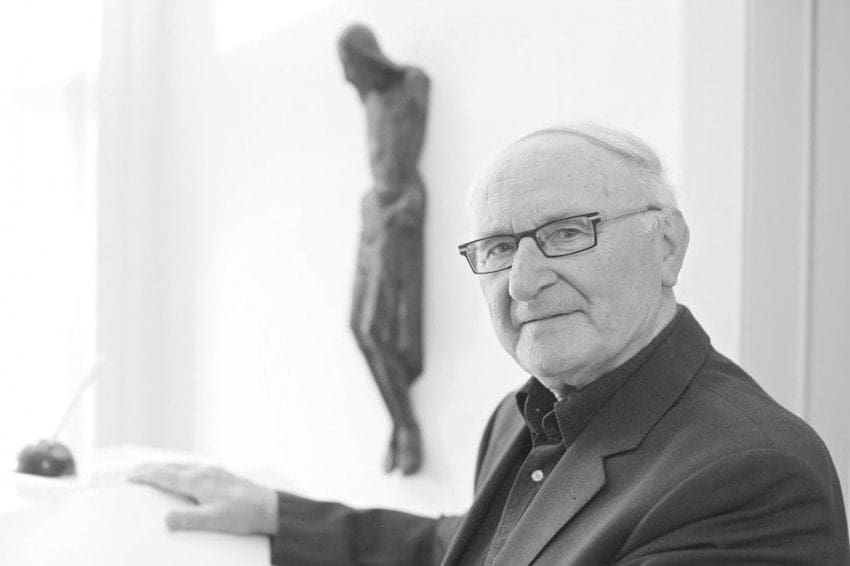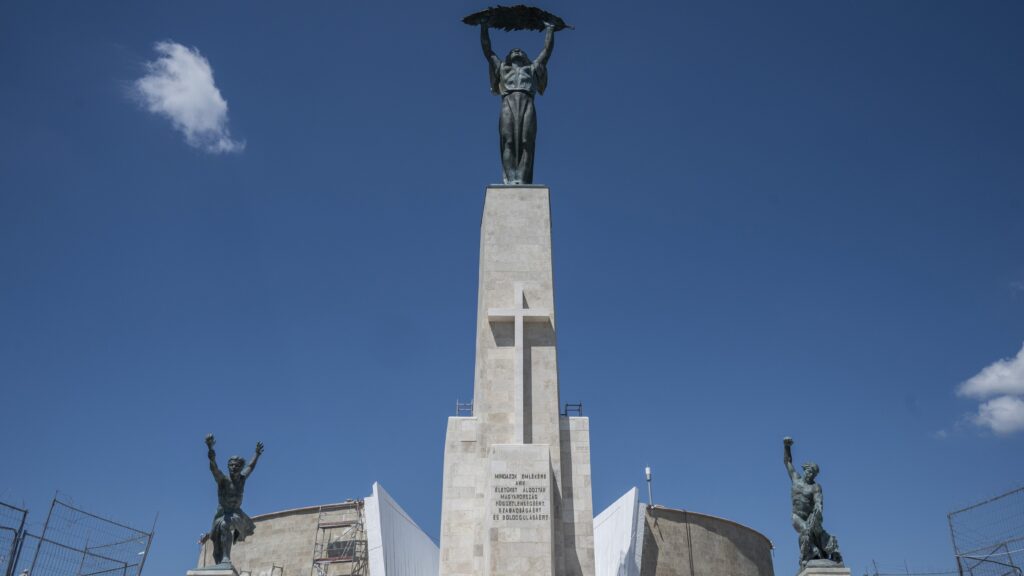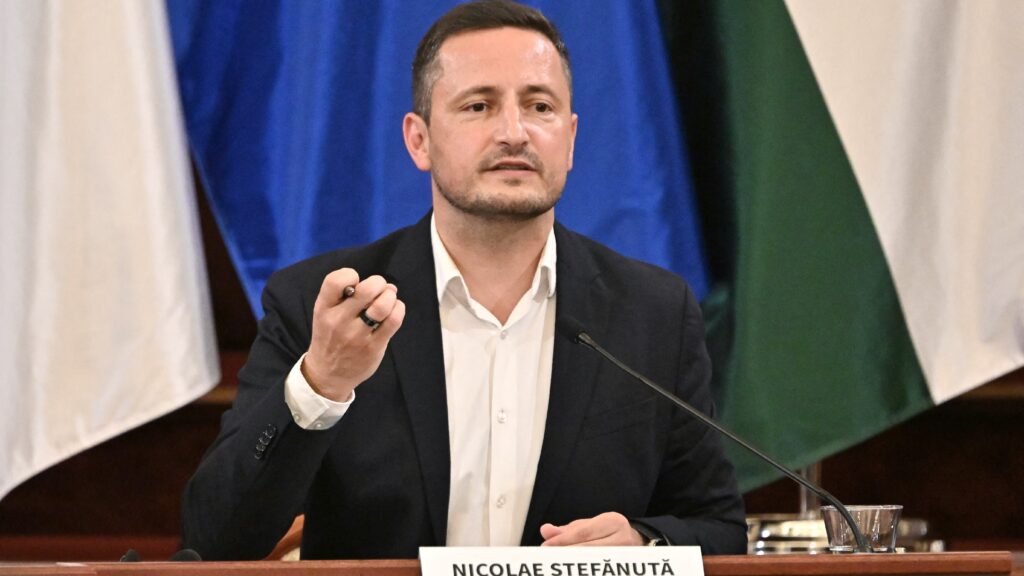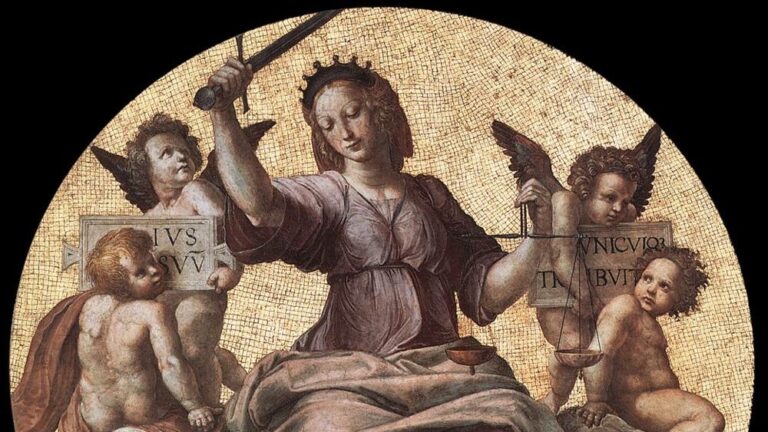What approach should Christians take to modern politics? What are their obligations in contemporary public life? Which Christian values should be endorsed in modern democracy and which political instruments may be used to further those values? Several Christian philosophers, theologians, and politicians have in the past sought to provide answers to these crucial questions. Our series of articles seeks to rekindle interest in those authors, firstly because we believe that they receive less attention than they deserve, and without forgetting the extensive academic literature on them (since most of them attract serious scholarly interest) we argue that their ideas are underrepresented in public discourse. Secondly, we believe that to answer the questions raised above, one should be able to study acknowledged theologians and philosophers who are well-versed in the wisdom of the Christian faith and base their political arguments on it. Consequently, the political insights of modern theologians will be presented with a special focus on the Christian origins and sources of their ideas. We hope that these articles will increase public interest in these inspiring figures.
The first article in this series examined the anti-modernism of the Neo-Calvinist theologian Abraham Kuyper, a former prime minister of the Netherlands. The second article focused on Reinhold Niebuhr, one of the most influential twentieth-century American protestant pastors. The third article presented a brief introduction to the political thinking of an eminent contemporary Catholic theologian, Joseph Ratzinger, the subsequent Pope Benedict XVI.
We now briefly introduce the ‘new political theology’ of Johann Baptist Metz (1928-2019), a contemporary of Ratzinger’s and a defining figure in 20th-century German theology. Metz is an unusual figure not only in German, but also in world theological history. As a Catholic priest, he was among the first to address the possibilities of post-Auschwitz theology, and to pay particular attention to the Jewish view of history.[1] He took part in the work of the Internationale Paulusgesellschaft, or International Pauline Society, which sought to promote dialogue between Christian theologians and Marxist thinkers. Metz belonged to a circle of the German Jesuit monk Karl Rahner who, as a representative of the nouvelle théologie, had a significant influence on the progressive documents of the Second Vatican Council. He also maintained active contacts with prominent figures of the Frankfurt School, most notably Theodor W. Adorno, Max Horkheimer, and Jürgen Habermas.[2] Interestingly, his relationship with Ratzinger, the subject of our last article, was less smooth. According to some reports, Ratzinger, as archbishop of Munich, played a major role in persuading the Bavarian Minister of Education not to appoint Metz as professor of theology at the University of Munich.[3] At a podium discussion on Metz’s 70th birthday, however, the future pope said, ‘[i]t is much easier for me to list all the points on which we agree.’[4]
However, they certainly never agreed on ‘new political theology’, for Ratzinger rejects political theology in all its guises. He rejected, he said, ‘any theology such as that of JB Metz or the classical forms of liberation theology, that involves the instrumentalization of either the Church or the faith for political purposes’.[5] But what does this mean for Metz’s conception of ‘political theology’? In order to understand exactly what ‘new political theology’ is, it is worth taking a ‘negative’ approach. Thus, we will first identify what ‘new political theology’ is not.
The term ‘political theology’ brings the famous German philosopher of law Carl Schmitt involuntarily to mind, as it is thanks to Schmitt that the term became widespread in the 20th century
The term ‘political theology’ brings the famous German philosopher of law Carl Schmitt involuntarily to mind, as it is thanks to Schmitt that the term became widespread in the 20th century. Schmitt puts it in his famous work that ‘[a]ll significant concepts of modern theory of the state are secularized theological concepts’[6] That is, the term political theology suggests that ‘thought structures which seem otherwise political at first glance in fact show profound analogies with certain theological systems’.[7] Schmitt’s work presents theological analogies for the concepts of sovereignty, the state of exception, and legality. The political sovereign corresponds to God, the law to the natural laws given by God, while the state of exception can be compared to miracles. Although Metz also uses the term ‘political theology’, he distinguishes his conception of the term from Schmitt’s. Perhaps the myriad misunderstandings surrounding Metz have arisen precisely because of his use of the same term. For this reason, he later began to refer to his own approach as ‘new’ political theology, since Metz’s concept fundamentally differs in terms of content. According to Metz, Schmitt’s notion of political theology is based on the principle of the universality of all-pervading sin.[8] The demarcation is even clearer in his formulation: ‘[T]he form of ‘political theology’ that appears here is not primarily a theory of state, law, or society (as in Carl Schmitt), but rather theology, a theology that “turns to the world” and “in a given age” speaks of God.’[9]
Metz’s ‘new political theology’ seeks to formulate a critique of contemporary theology. His critical approach is fundamentally focused on transcendental, existential, and personalist theology. According to Metz, following the Enlightenment the social aspects of Christian teaching were transferred to the private sphere. This, however, neglects the importance of social and political reality, which has generated a radical crisis for theology, as the resulting gap between socio-political reality and theology seems insurmountable. Thus, Metz’s basic program is to use ‘new political theology’ to ‘lift our conception of the basis of our theology from out of the private sphere’. This, in turn, is linked to the ‘positive task’ of political theology, which seeks to articulate the eschatological message of the Christian faith ‘in light of the conditions of the present social situation’.[10] With regard to the adjective ‘political’, he states:
I do not use the term “political” merely in the sense of “party politics”. With an eye to Protestant traditions which I hold in high esteem, I would put it this way: since we Catholic Christians do not believe that reason is subsumed within faith, or that nature may somehow be absorbed by grace, so politics cannot be transformed into secure salvation. But that is precisely why political theology must exist.[11]
Interestingly, there is also a connection between ‘new political theology’ and Reinhold Niebuhr, whom we presented in an earlier issue. Metz stated, in a 1992 article entitled Political Theology in the Evangelisches Kirchenlexikon, that ‘the influence of Reinhold Niebuhr (1892–1971) (Social Gospel) can be clearly seen in the North American manifestations of political theology (insofar as socio-ethical considerations are at the forefront)’.[12] Niebuhr’s Christian realism, which focuses on human guilt, is also a critique of Metz, insofar as it focuses on sensitivity to sin instead of sensitivity to suffering. According to Metz, while suffering has a generative character, a sin-sensitive religion ‘obscures the biblical vision of divine justice’.[13]
It is also important to address the central category of Metz’s theology. This is memoria passionis, a memory of suffering that can display a proactive memory in a pluralist public, forming a historical dialectic of oblivion. Remembering the suffering of a stranger, the suffering of the other, is possible within the politics of modernity, insofar as it is based on ‘anamnestic reasoning.’ As such, in conflict situations, the enemy would take the suffering of the other into account in shaping its actions.[14] The Church cannot attempt to enforce this by means of a policy of power, because its task is fundamentally different: to maintain the message of salvation for all people throughout history.[15] Therefore, in the face of power, the role of the church is primarily to critique that power, thus helping protect those threatened by it. However, it is important to understand that the church’s critique of power does not mean, for Metz, that Christians should refrain from political participation or positions of power. Indeed, it is their task to actualize the ideals of Christian love through socially critical strength.[16]
Finally, it is important to see that according to new political theology, ‘the church is already acting as a political element,’[17] since in Judeo-Christian religion, the pursuit of Christ has an internal political dimension, or as Metz puts it, ‘[i]f it had nothing to do with politics, or was politically neutral, the Son of God would never have been crucified!’.[18]However, this does not mean a commitment to political ideologies, but rather a commitment to God which, Metz believes, has lost its divine character in post-Enlightenment civic religion, and has been degraded to the realm of values.
Metz’s ‘new political theology’ is thus primarily theology and not a political theory, but at the same time is also a critique of the church, society, and power. It shows Christians a path subject to the reality of God — and not of this world — which seeks, in the remembrance of suffering and sufferers, to act in the light of unconditional and thus subversive Christian love, both on the societal and individual levels.
Translated by Thomas Sneddon
[1] Johann Baptist Metz: ‘Nach Auschwitz’ In Memoria passionis. Ein provozierendes Gedächtnis in pluralistischer Gesellschaft [Memoria passionis. A Provocative Memory in a Pluralistic Society] JBMGS Volume 4. Freiburg – Basel – Vienna: Herder, 2017, 45-74.
[2] For more on this topic, see: Edmund Arens: Eine mühsame Allianz: Jürgen Habermas und Johann Baptist Metz [An Arduous Alliance: Jürgen Habermas and Johann Baptist Metz] in Neue Wege: Beiträge zu Religion und Sozialismus. Volume: 112, Issue: 7-8 (2018), 28-30, http://doi.org/10.5169/seals-816569
[3] Doch net den. In Der Spiegel (1980.08.31.), https://www.spiegel.de/politik/doch-net-den-a-392b6f02-0002-0001-0000-000014325648?context=issue, 2021.11.05
[4] Joseph Ratzinger –Johann Baptist Metz: Isten, a szenvedés és a politikai teológia [God, Suffering and Political Theology] In. Vigilia, Volume: 71, Issue: 6 (2006), 402-409
[5] Vincent Twomey: Pope Benedict XVI: The Conscience of Our Age. A Theological Portrait. San Francsisco: Ignatius Press, 2007, p. 72 footnote 58
[6] Carl Schmitt: Political Theology. Four Chapters on The Concept of Sovereignty. Chicago – London: The University of Chicago Press, 2005, 36
[7] Tamás Nyirkos: Politikai teológiák. A demokráciától az ökológiáig [Political Theologies: From Democracy to Ecology] Budapest: Typotex, 2018, 15.
[8] Johann Baptist Metz: Religion und Politik and den Grenzen der Moderne Versuch einer Neubestimmung (1995-1997) [Religion and Politics at the Limits of Modernity Attempt at a Redefinition (1995-1997)] in Neue Politische Theologie. Versuch eines Korrektivs der Theologie [New Political Theology. Attempt at a Corrective of Theology] JBMGS Volume 3. Freiburg – Basel – Vienna: Herder, 2016, 143-163.
[9] Johann Baptist Metz: Foreword to Az új politikai teológia alapkérdése [The Fundamental Question of New Political Theology] Budapest: L’Harmattan, 2004, 7.
[10] Johann Baptist Metz: Das Problem einer „Politischen Theologie” und die Bestummung der Kirche als Institution gesellschaftskritischer Freiheit (1967) [The Problem of a ‘Political Theology’ and the Silencing of the Church as an Institution of Free Social Critique (1967)] in Neue Politische Theologie. Versuch eines Korrektivs der Theologie [New Political Theology. Attempt at a Corrective of Theology], 11-26.
[11] Joseph Ratzinger –Johann Baptist Metz: Isten, a szenvedés és a politikai teológia [God, Suffering and Political Theology], 402-409
[12] Johann Baptist Metz: Neue Politische Theologie. Versuch eines Korrektivs der Theologie [New Political Theology: Attempt at a Corrective of Theology], 11-26.
[13] Johann Baptist Metz: Religion und Politik and den Grenzen der Moderne Versuch einer Neubestimmung (1995-1997) [Religion and Politics at the Limits of Modernity Attempt at a Redefinition (1995-1997)]
[14] Johann Baptist Metz: Religion und Politik and den Grenzen der Moderne Versuch einer Neubestimmung (1995-1997) [Religion and Politics at the Limits of Modernity Attempt at a Redefinition (1995-1997)]
[15] Johann Baptist Metz: Das Problem einer „Politischen Theologie” und die Bestummung der Kirche als Institution gesellschaftskritischer Freiheit (1967) [The Problem of a ‘Political Theology’ and the Silencing of the Church as an Institution of Free Social Critique (1967)]
[16] Johann Baptist Metz: Das Problem einer „Politischen Theologie” und die Bestummung der Kirche als Institution gesellschaftskritischer Freiheit (1967) [The Problem of a ‘Political Theology’ and the Silencing of the Church as an Institution of Free Social Critique (1967)]
[17] Ákos Lázár Kovács: Az új politikai teológia [The new Political Theology]. In. Távlatok, Volume: 16, Issue: 72. (2006), 133-141.
[18] Johann Baptist Metz: A vallás és a politika egy átalakuló korban [Religion and Politics in an Age of Change] (1981) in Metz, Johann Baptist: Az új politikai teológia alapkérdése. [The Fundamental Question of New Political Theology], Budapest: L’Harmattan, 2004, 83-90.








